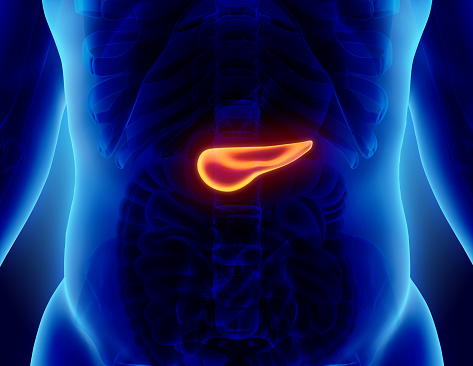
Patients with type 2 diabetes who are treated with dipeptidyl peptidase-4 (DPP-4) inhibitors are at risk for developing pancreatitis and pancreatic cancer, according to a study published in Diabetes Care.
The study included 33,208 patients (mean age, 62.1 years; 42.2% women) from the Korean National Health Insurance Service–Health Screening Cohort database who had newly diagnosed type 2 diabetes and were treated with diabetes medications between 2007 and 2013. Among this cohort, 10,218 patients were new users of DPP-4 inhibitors, including sitagliptin, vildagliptin, linagliptin, saxagliptin, and gemigliptin.
Increased risk of cancer with DPP-4 inhibitor exposure
DPP-4 inhibitor users were 27% more likely to develop pancreatitis compared with those receiving other medications (adjusted hazard ratio [aHR] = 1.27; 95% CI, 1.07-1.52) and 24% more likely to develop pancreatitis when the researchers considered a six-month exposure lag (aHR=1.24; 95% CI, 1.01-1.52; P=0.037). Those exposed to DPP-4 inhibitors were 50% more likely to experience pancreatic cancer compared with those using other medications (aHR=1.5; 95% CI, 1.02-2.2) and 81% more likely when the researchers incorporated a six-month exposure lag (aHR=1.81; 95% CI, 1.16-2.82; P=0.009).
Those who had exposure to DPP-4 inhibitors experienced pancreatitis 1,073 times per 100,000 person-years compared with 935 times per 100,000 person-years for patients on other diabetes medications. DPP-4 inhibitor users experienced pancreatic cancer 236 times per 100,000 person-years compared with 200 times per 100,000 person-years for patients on other medications.
The risk of pancreatitis and pancreatic cancer was generally consistent in the first 12 months and one year after the initial prescription without an increasing trend related to exposure duration. “The absence of increasing trend according to exposure duration suggests the chances of reverse causality, and long-term pancreatic safety of DPP-4 inhibitors has to be further investigated,” the researchers noted.







 © 2025 Mashup Media, LLC, a Formedics Property. All Rights Reserved.
© 2025 Mashup Media, LLC, a Formedics Property. All Rights Reserved.